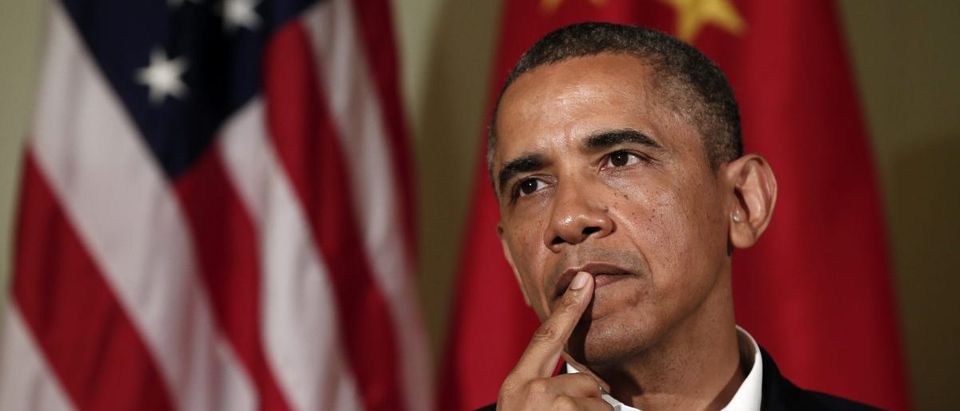China and the U.S. are playing a classic game of hot potato with the North Korean nuclear crisis following the North’s fifth nuclear test last Friday.
North Korea tested a nuclear bomb with a yield of at least 10 kilotons last Friday, moving the third world dictatorship closer to its goal of successfully mounting a nuclear warhead on a growing collection of ballistic missiles.
World leaders have been considering sanctions and military responses to North Korean provocations, while the U.S. and China decide who to blame for the nuclear crisis on the Korean peninsula.
“One thing I’d single out is the role of China. It’s China’s responsibility. China has and shares important responsibility for this development and has an important responsibility to reverse it,” said Secretary of Defense Ash Carter during a joint press conference with Norwegian Defense Minister Eriksen Søreide in Oslo, Norway last Friday. Carter’s comments reflect consistent complaints that China has not done enough to curb the growing North Korean nuclear threat or has intentionally undermined American efforts aimed at nonproliferation.
“The cause and crux of the North Korean nuclear issue rest with the U.S. rather than China. The core of the issue is the conflict between the DPRK and the U.S. It is the U.S. who should reflect upon how the situation has become what it is today and search for a better solution. It is better for the doer to undo what he has done. The U.S. should shoulder its due responsibilities,” Chinese Ministry of Foreign Affairs spokeswoman Hua Chunying said in response to Carter’s comments during a regular press conference Monday.
The North Korean threat exists within the rift between the U.S. and China, yet the two sides have fundamentally different views on how to pursue stability.
“The Korean nuclear issue must be resolved through dialogue and consultation … A vicious cycle of forceful actions and reactions will make it even harder to untie the knot of the Korean nuclear issue,” explained Hua. China is hesitant to put pressure on North Korea because it fears that a collapse of the present regime will create instability along its border. It also sees North Korea as a valuable counterweight to U.S. power in the region.
The U.S. needs “improvements to our deterrent capability on the peninsula, like missile defense capabilities against missiles of all ranges …We also have missile defenses oriented at the defense of the northern part of Japan and the United States … I think we need to redouble the pressure on North Korea in addition to sanctions which are so important,” Carter said. Carter also reaffirmed the U.S. desire to install a Terminal High Altitude Area Defense (THAAD) missile shield in South Korea., saying that the U.S. “nuclear umbrella” will remain in place.
Beyond pressure, the U.S. also needs China onboard to present a united front against North Korea, but that may prove impossible to achieve. Not only does China not want to put pressure on North Korea, it also lacks the ability to control North Korea.
North Korea’s ER Scud missile test during the G-20 summit in Hangzhou, China last Monday made it clear that North Korea is not on China’s leash.
“North Korea didn’t just decide to test a new Scud missile during the G-20 summit in China by coincidence. No, the North Koreans have been hopping mad since China failed to shield them from condemnation by the U.N. Security Council following the test of a submarine-launched ballistic missile in early August,” Jeffrey Lewis, director of the East Asia Nonproliferation Program for the James Martin Center for Nonproliferation Studies at the Middlebury Institute for International Studies, wrote in Foreign Policy.
“China doesn’t have any sticks with North Korea,” Tong Zhao, an associate at the Carnegie Tsinghua Center for Global Policy in Beijing, told CNN. “It won’t cut off economic ties completely; that would make China vulnerable to North Korea threats … and potential collapse.”
An unstable North Korea is far more dangerous than a nuclear-armed North Korea, according to Chinese political leadership, because the latter has the potential to aid Chinese efforts of balancing U.S. power. “Previously, China saw North Korea as a liability. But now, if China sees a great threat from the U.S., its value could rise,” Zhao explained. As China intends to use North Korea, North Korea has leverage and is now holding all the cards. “China will do the easy things … but China is now in a worse position to have influence on North Korea.”
“Beijing apparently has very little real leverage,” Zhao told the Military Times.
Send tips to ryan@
All content created by the Daily Caller News Foundation, an independent and nonpartisan newswire service, is available without charge to any legitimate news publisher that can provide a large audience. All republished articles must include our logo, our reporter’s byline and their DCNF affiliation. For any questions about our guidelines or partnering with us, please contact licensing@dailycallernewsfoundation.org.


